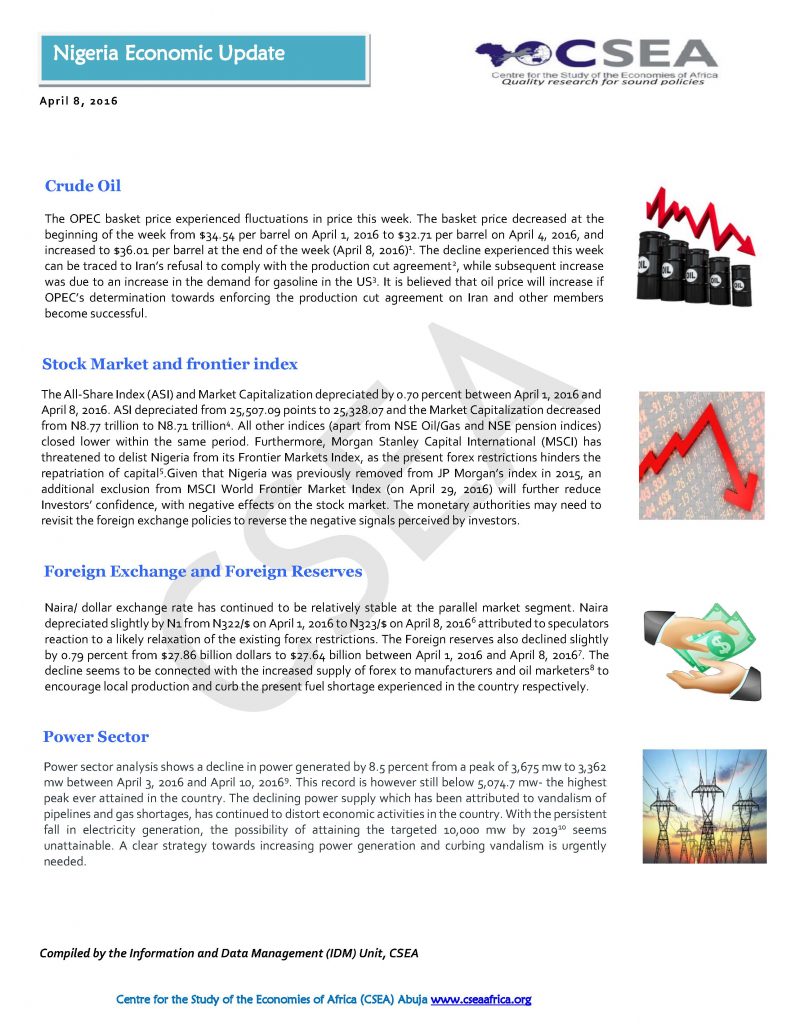Macroeconomic Report & Economic Updates

April 28, 2016
Nigeria Economic Update (Issue 17)
Power sector analysis shows a decline
in power generated by 8.5 percent from a peak of 3,675 mw to 3,362 mw between
April 3, 2016 and April 10, 20169. This record is however still
below 5,074.7 mw- the highest peak ever attained in the country. The declining
power supply which has been attributed to vandalism of pipelines and gas
shortages, has continued to distort economic activities in the country. With
the persistent fall in electricity generation, the possibility of attaining the
targeted 10,000 mw by 201910 seems unattainable. A clear strategy towards
increasing power generation and curbing vandalism is urgently needed.
Related
Nigeria Economic Update (Issue 6)
Latest figures of FDI flows to Nigeria show
a decline of 27 per cent from $4.7 billion in 2014 to $3.4 billion in 20152,
representing its lowest value since 2005. This decline is largely attributed to
the oil price slump, which has generally increased uncertainty in the economy,
with adverse effects on investors confidence. The fall in FDI flows was
witnessed in most resource based economies in Africa, as FDI flows to the
continent fell by 31 percent in 2015. The forex controls in place in Nigeria
has also exacerbated the uncertainty in economy, and created obstacles for both
domestic and foreign investors. Thus a review of the forex restrictions could
send positive signals to investors.
